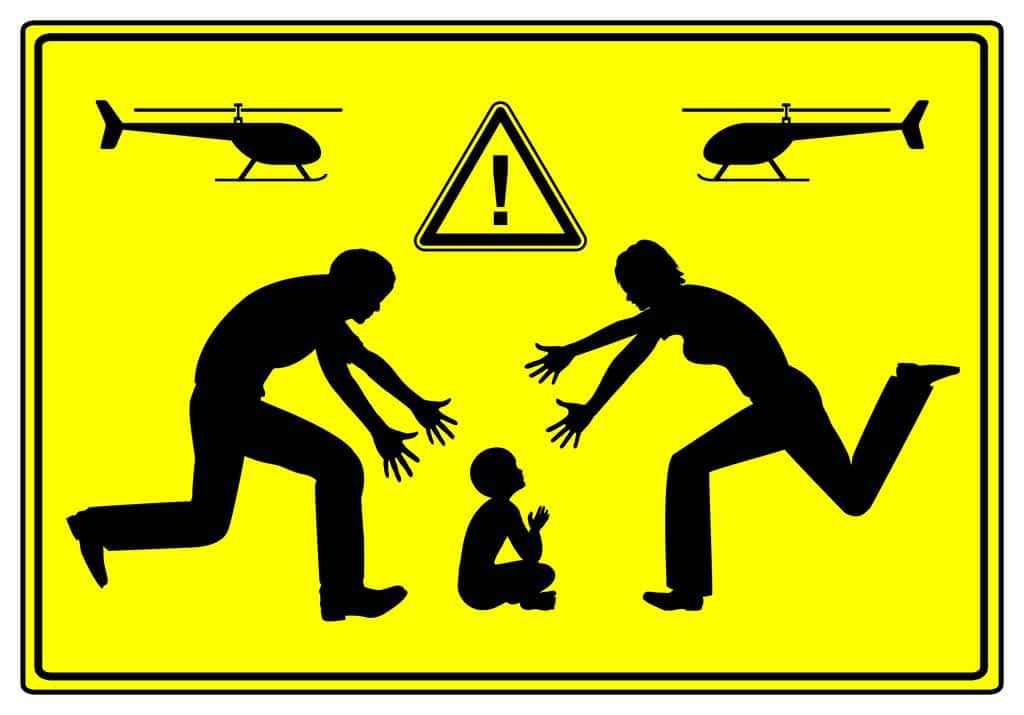Psychopathy in Relationships: 4 Ways to Protect Yourself
Have you ever looked back on a relationship and thought, “Wait… was any of that even real?” That kind of confusion and emotional whiplash can often be traced back to something deeper and more sinister: psychopathy in relationships.
It doesn’t always show up the way you expect. It’s not all movie-villain intensity. Sometimes, it’s hidden behind charm, fake vulnerability, and just enough breadcrumbs of “love” to keep you questioning yourself instead of the person hurting you.
The term Dark Triad might sound dramatic, but it’s painfully real for those who’ve lived it. It’s a trio of toxic traits: psychopathy, narcissism, and Machiavellianism, that work together to break down your sense of self.
In many cases, it’s the coldness and emotional detachment, the psychopathic traits, that twisted the relationship into something unrecognizable. No empathy. No remorse. Just control, mind games, and a constant feeling like you are losing yourself.
If you’ve ever felt stuck in that toxic fog, unsure of what’s happening or how you got there, I want you to know this: naming it is powerful. Understanding the effect of psychopathy in relationships can be the lifeline that helps you step out of the chaos and begin to heal.

💡Key Highlights:
- Understand the traits that define psychopathy in relationships and how they shape toxic dynamics.
- Learn why trusting your intuition can be your strongest defense against manipulation.
- Discover how setting clear boundaries can safeguard your emotional well-being.
- Find out why isolation can fuel psychopathy and how support networks can help you heal.
- Explore the lasting effects of psychopathy on self-esteem, trust, and mental health.

Understanding the Psychopath’s Sense of Self
One of the most confusing parts of psychopathy in relationships is trying to understand who you were really with. The truth is, a psychopath’s sense of self isn’t whole or grounded like most people’s.
It’s this messy, distorted version of identity that’s built on lies and image control. They know how to wear a convincing mask that is charming, funny, even vulnerable when it suits them, but underneath, there’s no real emotional core.
They don’t build relationships for connection or love. They build them to gain something: attention, control, admiration, status. Whatever serves them in the moment. And because they lack authentic emotions, everything can start to feel one-sided and off, like you’re pouring your heart into something that’s just… empty on their end. Psychopathy in relationships isn’t two people growing together, it’s about one person using the other to feel powerful or stay in control.

Psychopathy in Relationships: Traits to Watch For in Relationships
Psychopathy in relationships can be incredibly hard to spot at first. These people don’t show up wearing signs that say “I’m here to emotionally wreck you.” In fact, it’s often the opposite. They’re magnetic. Confident. Even intoxicating. But behind that carefully crafted charm can lie a pattern of manipulation, emotional coldness, and behaviors that leave you constantly questioning your own worth.
Now, not everyone with a few of these traits is a full-blown psychopath, but the more boxes that get ticked, the more you should pay attention.
Here are some of the key traits that often show up when psychopathy in relationships is involved:
🌀 Superficial Charm
They’re the kind of person who could talk their way out of a speeding ticket or win over a room in minutes. Their charm feels electric, but it’s not connection. It’s control.
💔 Lack of Empathy
You might find yourself crying, breaking down, or needing support, only to be met with a cold stare or twisted logic that somehow makes it all your fault. Psychopaths don’t “miss” empathy. It just doesn’t exist in them in the way it does in you.
🎭 Master Manipulators
They know how to push you and pull your strings. Whether it’s guilt-tripping, gaslighting, or playing the victim, manipulation becomes their language of love.
🕳️ Deception as a Way of Life
Lies aren’t slip-ups for them, they’re part of the game. Elaborate stories, secret lives, and half-truths are tools used to keep you guessing and off-balance.
📉 Shallow Emotional Reactions
They’ll say “I love you” early. They’ll react big when it serves them. But over time, you start to feel like their emotions are…off. Not quite real. Because often, they’re not.
🚫 No Real Remorse
Even after deeply hurtful actions, they’ll dodge accountability. You might hear excuses, deflection, or blame-shifting, but rarely, if ever, an honest “I’m sorry” that feels real.
⚡ Impulsivity
They act on urges without thinking twice by spending recklessly, disappearing for days, being unfaithfull. Their choices are often made in the moment, with no care for the consequences.
🔥 Promiscuity and Infidelity
Emotional loyalty isn’t something they value. They might cheat, flirt compulsively, or lead double lives, all while convincing you you’re “the crazy one.”
👑 Grandiosity
They see themselves as above the rules, and above you. You’ll notice this through how little they seem to value your needs, how they dismiss your emotions, and how often the spotlight seems to belong only to them.
🧠 Cunning Tactics
Gaslighting. Triangulation. Playing people against each other. Exploiting your trauma. These aren’t accidental, they’re part of a plan to stay in control.
💚A Loving Reminder
It’s important to know that not everyone who’s selfish or emotionally unavailable is a psychopath. Life is messy, and people are flawed. But psychopathy in relationships creates a pattern of harm that’s consistent, calculated, and deeply destabilizing.
If you see these traits lining up in your relationship, don’t ignore your gut. Talk to a therapist or someone you trust. You’re not crazy or overreacting. You’re seeing clearly, and that’s the first step toward freedom.

4 Ways to Protect Yourself From Psychopathy in Relationships
When love starts to feel more confusing than comforting, it’s time to stop, breathe, and reassess. Psychopathy in relationships doesn’t always show up as obvious abuse. Sometimes it’s wrapped in charm, intensity, or that too-good-to-be-true honeymoon phase. But once you’ve seen behind the mask, there’s no unseeing it.
💡Here’s how to protect yourself before the damage goes deep:
1. Educate Yourself
When it comes to psychopathy in relationships, knowledge really is power. The more you understand the behaviors and red flags, the quicker you’ll recognize them. That overwhelming charisma, the love-bombing, the subtle guilt trips, it’s not “just their personality.” It’s a pattern. And it’s dangerous.
Learning about psychopathic traits doesn’t mean you walk around suspecting everyone. It just means you’re equipped. You won’t second-guess yourself as much. You’ll see through the manipulations faster. And most importantly you’ll stop blaming yourself for someone else’s emotionally abusive behavior.
✔️Bottom line: You can’t dodge red flags if you don’t know what they look like. Learn them. Own them. Use them.

2. Trust Your Intuition (That Voice in Your Head Isn’t Crazy)
There’s a reason your stomach drops when something feels off. That’s not paranoia – it’s your nervous system throwing up a flare. And when you’re dealing with psychopathy in relationships, those subtle off-vibes are often your only early warning.
Manipulation isn’t always loud. Sometimes it comes in sweet words and lingering stares while your sense of self slowly erodes. So when something feels weird, too fast, too intense, or just plain wrong – listen to your body. You don’t need proof to pay attention. You just need to pause and look a little closer.
💡Reminder: Intuition doesn’t always scream. Sometimes it just whispers, “This isn’t it.”

3. Establish Boundaries (And Don’t Apologize for Them)
Psychopaths are professional line-crossers. They test your boundaries, not by blowing through them all at once, but by nudging them inch by inch until you’re not even sure what your limits used to be. That’s why setting firm, unapologetic boundaries is your armor.
Boundaries aren’t about punishing anyone. They’re about honoring yourself. About saying, “This is what I will and won’t accept,” even when it makes things uncomfortable. And the moment someone repeatedly ignores or disrespects those boundaries – that’s your sign. Healthy partners respect limits. Psychopaths try to erase them.
💡Bottom line: “No” is a complete sentence, and it doesn’t need a PowerPoint presentation to justify it.

4. Seek Support (You’re Not Meant to Do This Alone)
Isolation is a psychopath’s playground. They love when you stop talking to your friends. They love when you question your sanity. That’s how they keep control. So don’t give them that power.
Reach out. Talk to a friend, a therapist, a support group, or anyone who makes you feel grounded and heard. Tell your story without filtering it. Let someone remind you of who you really are beneath the confusion and emotional exhaustion.
Dealing with psychopathy in relationships can leave you feeling drained, ashamed, and unsure of everything. That’s exactly why support matters so much.

Long-Term Effects of a Relationship With a Psychopath
Getting out of a relationship with a psychopath doesn’t mean the damage just disappears. It lingers. It haunts. It reshapes how you see yourself, how you trust others, and how you move through the world. This kind of relationship leaves scars that go far deeper than most people realize.
If you’ve been through it, you already know: the worst wounds are the ones no one can see.
💔 1. Your Self-Esteem Doesn’t Just Take a Hit – It Shatters
One of the cruelest things about psychopathy in relationships is how slowly and subtly it breaks you down. Psychopaths don’t walk in with fists: they walk in with charm, intensity, and attention. Then they start chipping away.
They find your insecurities and use them like tools. They twist your words, blame you for their behavior, and flood your nervous system with just enough chaos to keep you stuck. Over time, you stop recognizing yourself. You stop believing in your worth. You might even wonder if you’re the problem.
That kind of emotional erosion doesn’t just go away. It sticks around, quietly influencing how you show up in future relationships, careers, and even friendships.

🧠 2. You Don’t Just Lose Trust in Them – You Lose Trust in Everyone
Trust becomes a loaded word after surviving a psychopathic relationship. You gave someone your heart, your vulnerability, and probably your forgiveness, only to be met with betrayal after betrayal.
So when the next person comes along and seems “too nice” or “too into you,” your alarms go off. You question their motives. You question your ability to read people. You question everything.
Rebuilding trust isn’t just about other people, it’s learning to trust yourself again. To believe in your intuition, your boundaries, and your ability to spot danger without second-guessing yourself to death.

😰 3. Your Nervous System Never Fully Powers Down
Even after the relationship ends, the damage lives on in your body. That constant stress rewires your brain. Hypervigilance becomes your default setting. You walk into rooms scanning for threats. You overanalyze texts. You brace for the rug to be pulled, because you’ve been there, and it hurt like hell.
This long-term anxiety, often linked to C-PTSD, isn’t something you can just “snap out of.” It’s a trauma response. And it makes future relationships hard, even when they’re healthy.

🧩 4. Healing Feels Like Untangling a Hundred Knots
Escaping a psychopath isn’t the end of the story; it’s the beginning of a new one. Healing means piecing yourself back together. It means grieving the person you were before the relationship and the version of you that survived it.
That might look like therapy. Or journaling. Or finally telling someone the whole truth about what happened. It’s not linear. It’s not pretty. But it is worth it.
💪You didn’t just survive abuse, you woke up to it. That clarity is power.

FAQ: Psychopathy in Relationships
1. What is psychopathy in relationships?
It’s when someone with psychopathic traits, like manipulation, lack of empathy, and deceit, enters a romantic relationship and causes emotional harm.
2. Can someone fake love during psychopathy in relationships?
Absolutely. Psychopaths often mimic love to gain control, but it’s not real emotional connection.
3. What are red flags of psychopathy in relationships?
Love bombing, gaslighting, lack of remorse, constant lying, and charm that feels too good to be true.
4. Can psychopathy in relationships cause trauma?
Yes. Many survivors experience anxiety, low self-worth, and symptoms of PTSD after the relationship ends.
5. Why do psychopaths target certain people?
They often seek empathetic, trusting partners, people they can easily manipulate and control.
6. Is it possible to heal from psychopathy in relationships?
Yes, with therapy, self-care, and strong support, healing is absolutely possible.
7. Do psychopaths know they’re hurting you?
Yes, and often they don’t care. In psychopathy in relationships, empathy is usually missing.
8. Can a relationship with a psychopath feel good at first?
Definitely. The beginning often feels intense and magical, that’s part of the manipulation.
9. Is leaving psychopathy in relationships difficult?
Yes. The manipulation creates emotional dependence, making it hard to walk away.
10. Should I warn others about my ex?
If it feels safe and necessary, yes. Sharing your experience could help someone else spot psychopathy in relationships sooner.

Thank you for reading this post, don't forget to subscribe!







